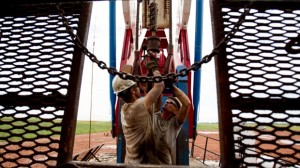The energy industry plays an important role in the U.S. economy, producing jobs for thousands of people nationwide. They’re often considered essential workers, providing vital services to society.
Despite this role, many of these workers, particularly in the oil and production sector, are among the most vulnerable to addiction, and addiction can be difficult to detect at oil field sites. Oil rig workers often work long hours in tough conditions with long breaks between shifts, making it an ideal breeding ground for unhealthy behaviors.
Luckily, options are available for oil field workers suffering from addiction. Treatment professionals have developed strategies to connect these workers with the help they need to recover.
One of the challenges in helping these workers is simply getting them to recognize and acknowledge their addiction. Many are reluctant to seek out help from outside sources.
That’s why many treatment centers are focusing on creating connections between these workers and the treatment they need. This could include outreach programs, which involve setting up information tables, providing educational materials and helping patients develop a plan for recovery.
Other strategies focused on connecting oil field workers with the help they need include social media campaigns and reports. T hese strategies aim to create positive awareness and messages around recovery from addiction while also providing patients with access to resources and information.
hese strategies aim to create positive awareness and messages around recovery from addiction while also providing patients with access to resources and information.
Building a support network is also an important part of connecting oil field workers with the help they need. Treatment centers and addiction specialists can help create these networks by introducing workers to other workers in recovery and helping them build positive relationships with one another.
Building peer-to-peer support networks can help workers feel less isolated, more connected, and give them the courage to enter treatment or sustain recovery.
Once someone has made the decision to get help for their addiction, oil field workers must then decide on a treatment plan that will be tailored to their needs.
Treatment typically includes a variety of approaches, from individual counseling to group sessions to 12-step meetings. It also might include medications to reduce cravings and further help manage the symptoms of addiction.
Oil rig workers may benefit from a residential treatment program, which can provide a clinical environment to help them focus on recovery. Approaches to treatment may also vary based on the individual’s needs.
Finally, many treatment centers are now offering virtual and telehealth options, making addiction treatment accessible to a wider range of oil rig workers. These options allow for a more flexible and well-rounded approach to recovery that provides individuals with a safe space to focus on their recovery without having to leave their jobs or other commitments.
Overall, oil field workers face unique challenges when it comes to addiction, but treatment professionals are working hard to create strategies and resources to help them find the help they need.
By building supportive networks, creating effective outreach, and increasing access to treatment, oil field workers can access the help they need to recover and stay clean for years to come.






